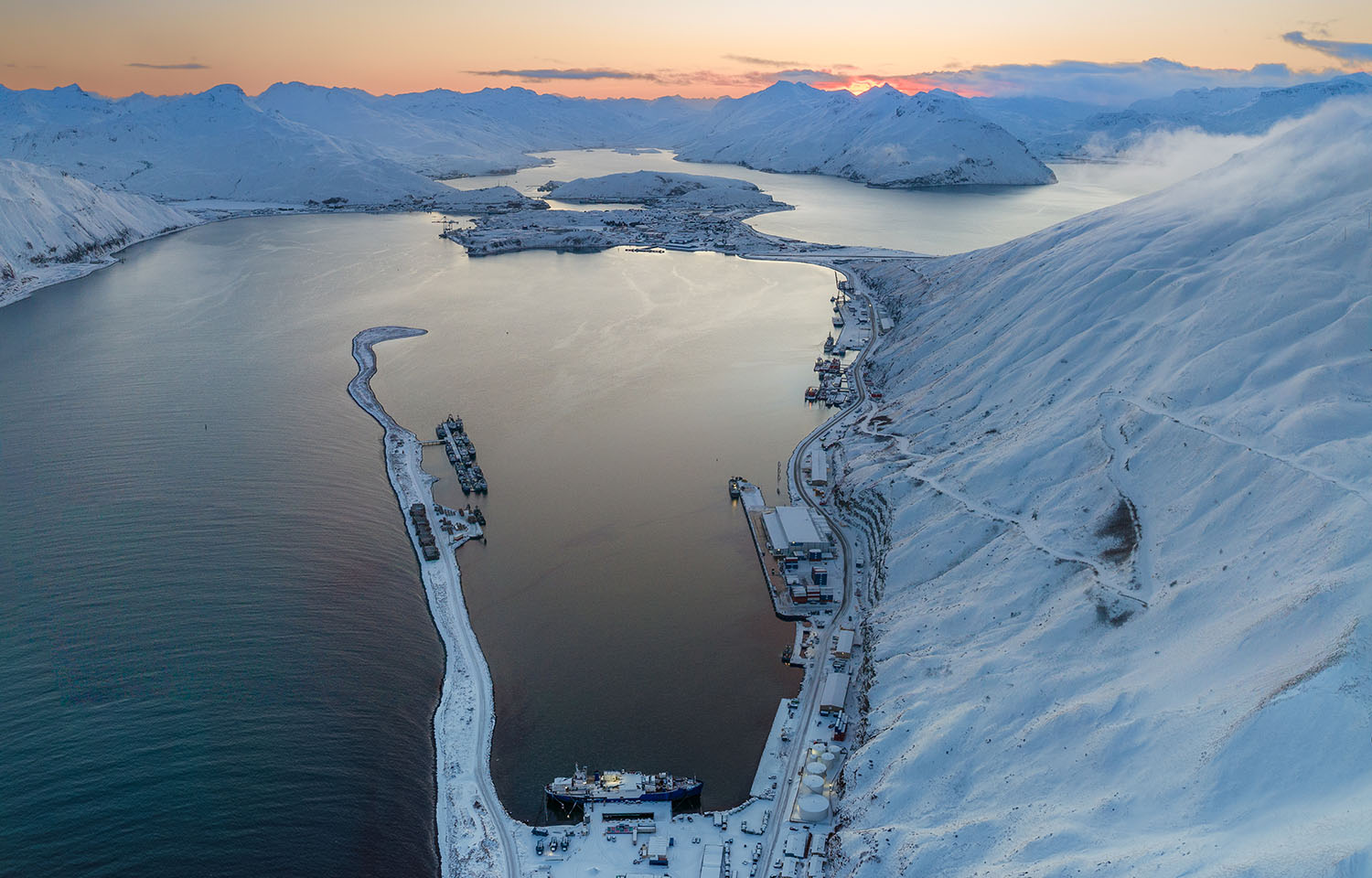Seattle, Washington, U.S.A.-based American Seafoods has released its 2023 sustainability report, in which it claims to have achieved a 99 percent target catch rate in the Alaska pollock fishery.
The statistic rebuts the argument made by representatives of other Alaska fisheries claiming Alaska pollock trawling bycatch is negatively impacting the U.S. state’s salmon and crab populations.
“I am absolutely thrilled with the progress American Seafoods has made with achieving key sustainability metrics as we remain at the forefront of innovation in our industry,” American Seafoods CEO Einar Gustafsson said in a press release. “We have a deep appreciation of the marine environment and a key understanding of the importance of sustainably managing our fisheries. These pillars are the very foundation of our success, and we look forward to pushing our efforts even further to help build a cleaner and healthier planet for all.”
American Seafoods, which operates seven fishing vessels capable of producing up to 150 metric tons (MT) of frozen fillets, surimi, roe, fishmeal, and fish oil daily, had more than USD 500 million (EUR 469 million) in revenue and recorded a 5 percent compound annual growth rate in 2023, with a double-digit adjusted earnings before interest, taxes, depreciation, and amortization (EBITDA) margin. It caught more than 250,000 MT of Alaska pollock and 70,000 MT of Pacific hake in 2023. Fifty percent of its sales went to Asia, while 30 percent headed to Europe, and 20 percent were in North America. In May 2023, Bregal Partners announced it would commence a sale process of its holding in the company.
The company’s second annual sustainability report noted the company maintained 100 percent third-party eco-certification for its catch; Produced 354,037 gallons of fish oil biodiesel, avoiding 227 metric tons of CO2-e emissions; Recycled more than 86,000 pounds of end-of-life and recovered ghost fishing gear; And donated more than USD 525,000 (EUR 492,000) to Alaska communities, food banks, and academic institutions.
“American Seafoods predicates itself on an unwavering commitment to the science-based management of our fisheries, continuous improvement of our vessels’ efficiencies, and our longstanding commitment to third-party certifications and full traceability,” American Seafoods Chief Sustainability Officer Tim Fitzgerald said. “The bottom line is that at American Seafoods, sustainability is central to everything that we do. While we are proud of our achievements, we know there is always more to be done. American Seafoods profoundly understands that responsible and conservative natural resource management is the predominant driver of long-term success for our business. We will continue to lead on this front.”
Fitzgerald deferred comment on bycatch issues to the newly created Alaska Pollock Fishery Alliance, but said bycatch “is one of those prominent topics that they're very focused on.”
“We want to be as transparent as possible about what it is that we're catching and what that looks like year to year on the granular level,” Fitzgerald told SeafoodSource. “We as an industry need to be transparent. That level of transparency is uncomfortable at times, but that's what we need to do.”
Fitzgerald said he was particularly proud of his company’s work to measure its carbon footprint for the first time. American Seafoods recorded 192,112 MT of carbon dioxide emissions in 2023, including 135,620 MT of Scope 1 emissions. That’s up from 86,180 MT in 2022 and 96,442 MT in 2021. Fitzgerald said that was due to 2022 being a lower catch year and adding the American Empress II to its fleet.
The primary driver of the company’s CO2 emissions was diesel fuel emissions, which accounted for …








